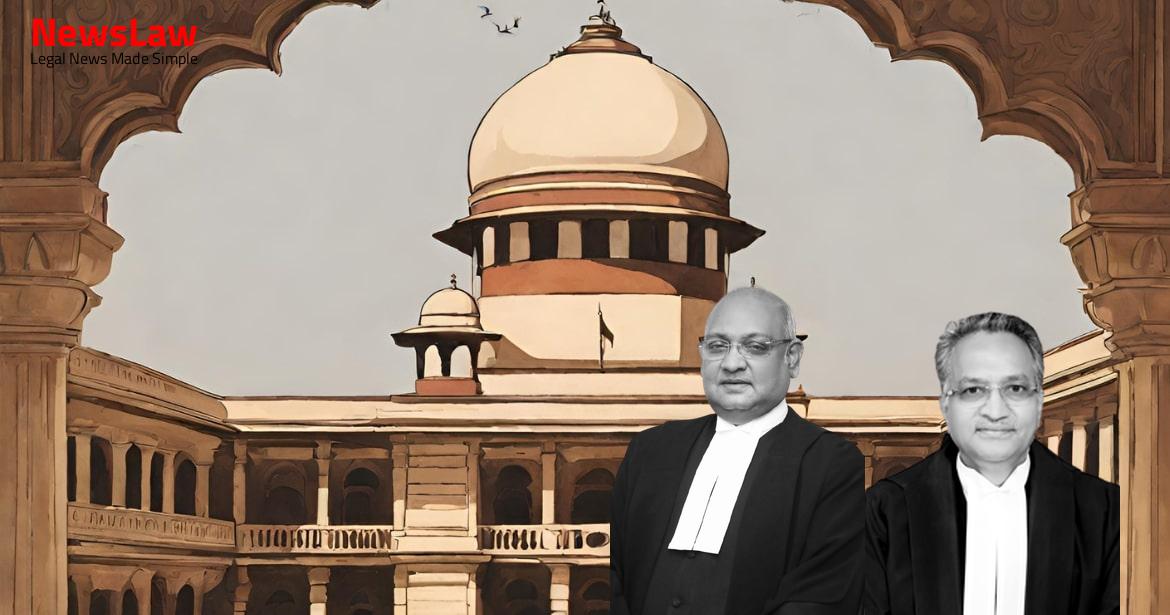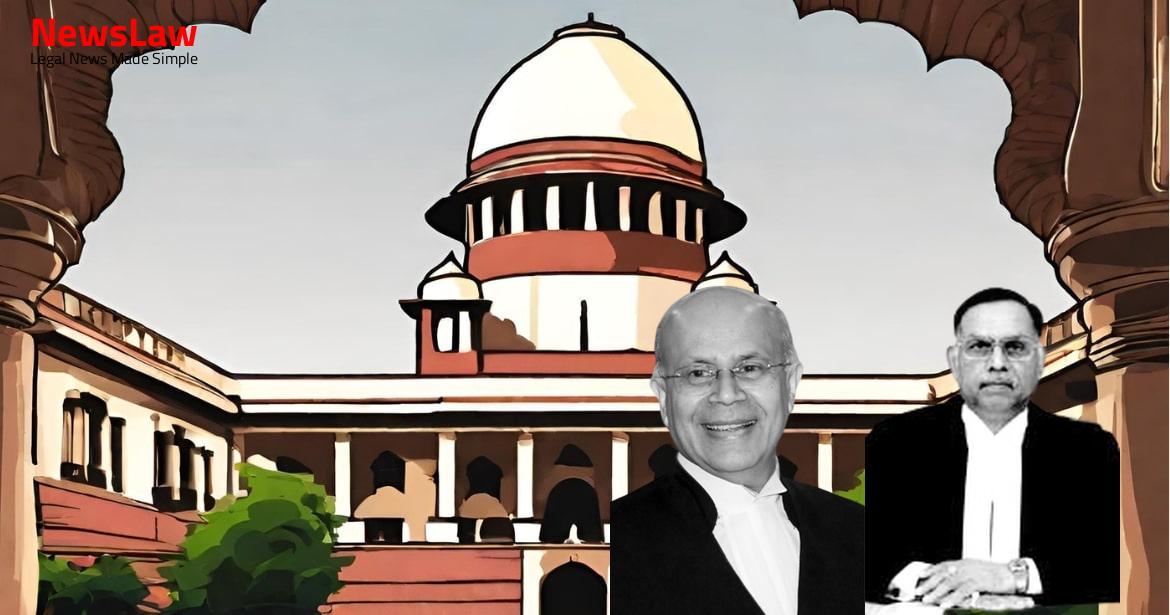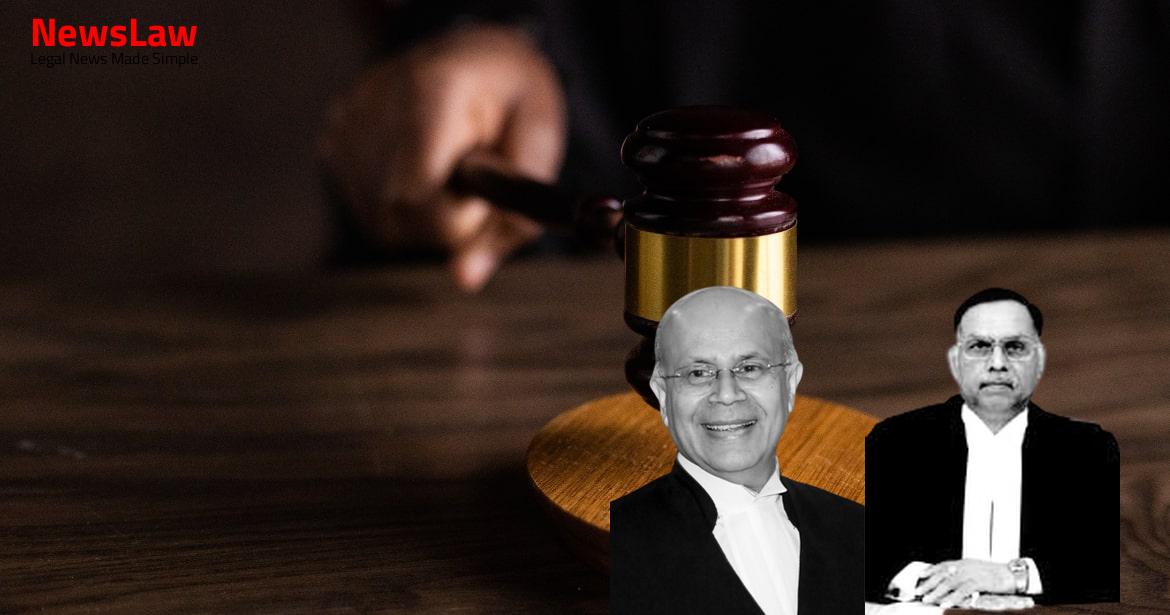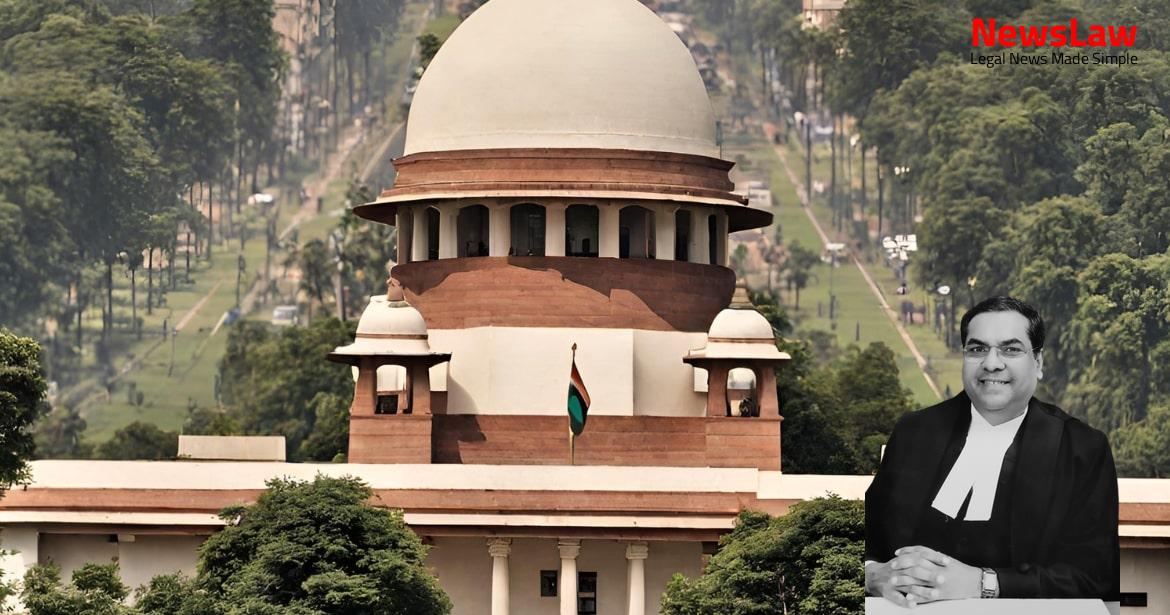In a significant legal development, the Supreme Court of India has delivered a decisive ruling on the State’s authority to impose charges on imported rectified spirit. The judgment, which impacts the production and sale of potable liquor, sheds light on the distinction between taxation and regulatory fees. This ruling follows a High Court decision challenged by the Board of Revenue, Jharkhand. Stay informed on this crucial case involving the production of ‘IMFL’ and the use of imported rectified spirit.
Facts
- The High Court allowed the writ petition filed by the respondent to challenge the notification issued by the Board of Revenue, Jharkhand.
- The High Court held that the State lacked legislative competence to levy tax or fee on the import of rectified spirit.
- The notification in question was issued under Section 90 of the Jharkhand Excise Act, 1915.
- The High Court considered rectified spirit as non-potable liquor, meaning it is alcohol not fit for human consumption.
- High Court opined that the appellant-State failed to justify the impugned levy on rectified spirit
- No justification provided for the levy based on services provided by the State or quid pro quo
- The original notification is in Hindi
Also Read: Balancing Justice: Case Summary of C.P. No. 16/2017
Arguments
- The approach of the High Court is deemed completely wrong and against the settled legal position.
- IMFL is manufactured in the respondent factory under a valid license for import and manufacture.
- The provision for fee collection after rectified spirit is used to produce ENA and then potable liquor does not change the nature of the levy on imported rectified spirit.
- The levy imposed is on the imported rectified spirit used in the production process.
- The respondent argues that the appeal lacks merit and should be dismissed, urging affirmation of the High Court decision.
- State cannot legislate or levy taxes on industrial alcohol, such as rectified spirit, under the guise of duty or fee.
- Imported rectified spirit does not attract excise duty and the rule for import fee remains effective.
- Import fee can only be imposed on goods produced within the State, not on imported rectified spirit.
- The respondent is licensed for production of ‘IMFL’ and has paid necessary fees for licenses like ‘Form 19’ for compounding and blending, Form 19-B for manufacture of liquor/beer, Form 20 for bottling, Form 25 for denatured spirit manufacture, and Form 28(A) for non-potable spirit manufacture.
- It is argued that the State cannot levy charges under the guise of import duty or excise duty on imported rectified spirit used for ‘IMFL’ production.
Also Read: Redefining Pre-Deposit Requirements: Ideal Detonators Pvt. Ltd. v. Commercial Tax Officer
Analysis
- The imposition of levy by the State on rectified spirit for the production of potable liquor is not justifiable under Article 301 of the Constitution of India.
- The notification issued by the Board of Revenue in exercise of powers under the Jharkhand Excise Act, 1915 is quashed as it cannot be sustained in law.
- The State’s power to levy fees pertains to granting privileges to those dealing in liquor fit for human consumption, not on industrial alcohol or non-potable liquor.
- The State has the authority to regulate and control the production of potable liquor for public health and morality.
- Rectified spirit, after undergoing physical changes and distillation, becomes Extra Neutral Alcohol (ENA) used for making Indian Made Foreign Liquor (IMFL).
- The State’s imposition of fees is not related to the provision of specific services to justify the levy on potable liquors.
- The levy on rectified spirit for the manufacture of IMFL is deferred until the final stage of bottling, indicating it is targeted at the end product and not the raw material.
- The levy is intended to ensure that rectified spirit is not diverted for misuse as a substitute for potable alcohol.
- The final product subject to the levy is the potable liquor, implying the charge is on the end product and not the industrial alcohol.
- The charges imposed are not akin to taxes or excise duties but are part of the regulatory framework for the production and sale of potable liquor.
- The Revenue Board of Jharkhand has issued two notifications regarding the manufacturing of foreign liquor and country liquor/spiced country liquor beverage in the state.
- The notifications specify the import fee rates to be deposited on imported spirit/rectified spirit before bottling and storage of the liquor.
- The notifications cite the specific rules and sections of the Jharkhand Excise Act, 1915 under which these additions are being made.
- The notifications also mention that they will come into force on the date of their publication in the official gazette.
- It is specified that the State cannot legislate on imported industrial liquor or levy any charge or tax on it.
- The court discussed the issue of levying license fees to discourage participation in the liquor business.
- The court referred to the decision in Synthetics and Chemicals Ltd. case on controlling, regulating, and restricting the liquor business.
- It was clarified that a high license fee is aimed at keeping out undesirable businesses.
- The judgment emphasized that citizens have a right to do business in liquor, but the State can impose reasonable restrictions in public interest.
- The State has the right to grant leases for manufacturing, supplying, or selling intoxicants.
- The court distinguished between a fee for special services rendered and excise duty on production or manufacture of goods.
- A license fee or fixed fee is the price the Government charges for granting privileges to the licensees.
- The court cited implications of the government’s exclusive ownership rights over privileges.
- The court highlighted that citizens do not have a fundamental right to trade in government-owned properties or rights.
- The judgment emphasized that the State need not provide a quid pro quo for services rendered to licensees of foreign liquor producers.
- The State’s levy on imported rectified spirit applies to the final processed product, not the spirit itself.
- The court clarified the nature of the charges as the price of a privilege in trading or business transactions.
- The legislation’s jurisdiction does not include levying charges on imported rectified spirit per se.
Also Read: Interpreting Section 14 of the 2002 Act: Equivalence of CJM and CMM
Decision
- The appeal has been allowed
- The impugned judgment and order of the High Court dated 25 July, 2013 has been quashed and set aside
- The writ petition in question has been dismissed
- All pending interim applications have been disposed of
- No costs have been ordered
Case Title: THE STATE OF JHARKHAND AND ORS. Vs. M/S AJANTA BOTTLERS AND BLENDERS PVT LTD.
Case Number: C.A. No.-005138-005138 / 2019



